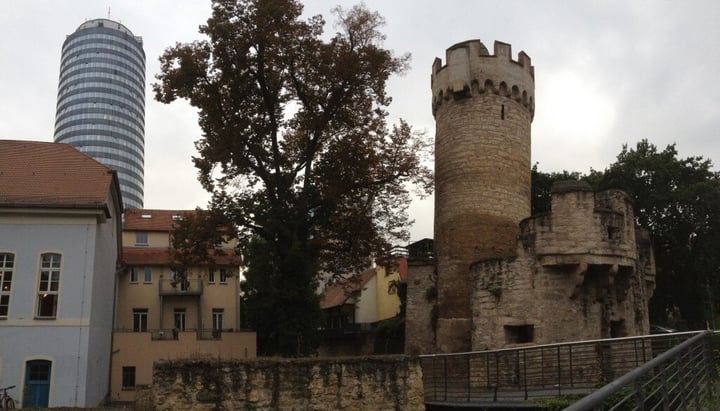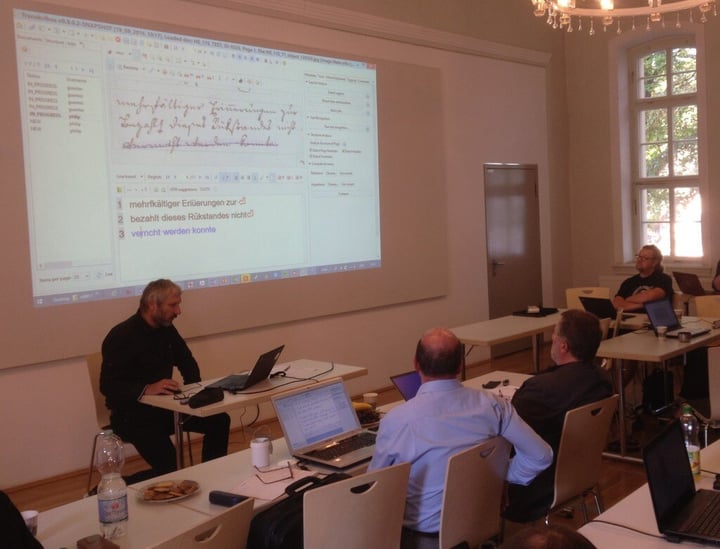.png?width=1280&height=720&name=Featured%20Image%20(12).png)
+ Historic transcription meets digitisation – Transkribus workshop in Jena
On 27 September 2016, the Friedrich-Schiller-Universität (FSU) Jena hosted a workshop on ‘Automatic Text and Structure Recognition as Elementary Technologies for Digital Humanities’. 32 attendees from FSU, as well as nearby archives and libraries followed the invitation from Andreas Christoph and Barbara Aehnlich and met for an intense day in Jena, Germany – filled with plenary lectures and a hands-on Transkribus workshop.

The program included talks by Eva Lang (Passau Diocesan Archives) on ‘From church registry books to data bases – Digitization Strategies in libraries and archives’, Günter Mühlberger (University of Innsbruck and READ project coordinator) on ‘Transkribus. A virtual research platform for automatic text recognition in printed and hand-written documents’, Florian Kleber (Computer Vision Lab, Vienna University of Technology) on ‘No text and hand-writing recognition without layout analysis’ and Raphael Unterweger (Innsbruck University Innovations) on ‘Structured data and document recognition with Rule-Appler and Structify’.
After a short lunch break, the group reconvened for a hands-on workshop, where Günter Mühlberger, assisted by Eva Lang, demonstrated the state-of-the-art of the Transkribus software, now also featuring a table editor and a user-friendly tagging system. After the long day, the participants were enabled to upload their own documents, transcribe their first test project and get a better understanding of the technologies behind hand-written text recognition.



.png?width=1280&height=720&name=Training%20a%20custom%20model%20v2%20(1).png)